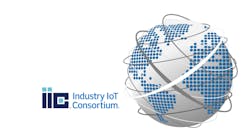Artificial Intelligence Framework Addresses End User Concerns
While widespread use of artificial intelligence (AI) and machine learning in manufacturing may still be several years off, both technologies are beginning to make their way onto the plant floor. Fueled by unprecedented amounts of data delivered via connected sensors and devices, properly trained AI algorithms can help optimize production processes, simplify quality control procedures, and enable various types of industrial autonomy.
Still, being a relatively new technology, standardized frameworks for AI are currently lacking, which could hinder their further application in industry. For example, the lack of such frameworks could result in implementation difficulties, a lack of interoperability with other systems, and cybersecurity vulnerabilities.
To this end, the Industry IoT Consortium (IIC) recently announced its development of the Industrial IoT Artificial Intelligence Framework (IIAIF). The IIAIF highlights the value proposition AI can offer industrial users as well as various implementation requirements and challenges they may face.
According to the IIC, “It is important to augment existing standards, best practices, and frameworks to ensure that users can trust AI-enabled IIoT systems. This has implications on established disciplines like security and privacy, as well as safety, reliability and resilience.”
The IIC’s framework brings together IT and OT (operations technology) perspectives to provide guidance in the development, training, documentation, communication, integration, deployment, and operation of AI-enabled IIoT (Industrial Internet of Things) systems. Moreover, it is structured to offer advice to business decision-makers, product managers, system engineers, use case designers, component architects, system integrators, and plant-floor operators. In addition to the technological and business issues discussed, the document covers ethical, privacy, bias, safety, labor impact, and societal concerns related to the deployment of AI.
"The rapid growth and innovation in the field of AI have unlocked applications that a few years ago were infeasible,” said Wael William Diab, chair of IIC’s Industrial AI Task Group and secretary of IIC’s steering committee. “By taking a holistic approach to the emerging requirements and challenges, the framework aims to accelerate responsible adoption of AI-enabled IIoT systems and ultimately bring the benefits of digital transformation to more use cases and sectors."
About the Author
David Miller
Former Senior Technical Writer

Leaders relevant to this article:
